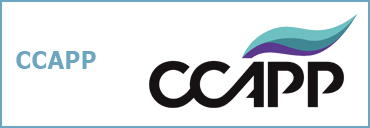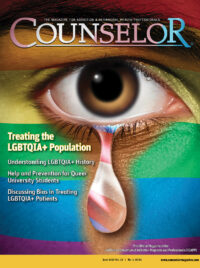Share

That is the question. Although that may be a revised quote taken from a Shakespearean play, it also seems apropos for today’s society. In the world we live in, there is so much division that has been causing a leak of unethical behavior into our daily lives. This leak is and has been corroding our society. This leak has also seeped into our addiction communities throughout California and the rest of the world. The question always exists: is it ethical? And when we are working with our clients, we must always ask ourselves: is it helpful, or is it harmful?
Many years ago, long before I became a counselor, I heard a wonderful statement in the rooms of Alcoholics Anonymous. The long-time member stated, “We should always be helpful to some and harmful to none.” That quote went on the wall of that recovery room after he passed, but has always remained in my thoughts and in my heart. That was over fifteen years ago, and I have always made it my motto.
The profession of substance abuse counselor has been a target of both compassionate people and the unethical characters who are salesmen at heart. The most unfortunate part of this divide that is always appalling to me is that the clients we work with become their targets.
I have had the fortunate pleasure of being a very huge part of the California Consortium of Addiction Programs and Professionals (CCAPP) for over ten years of my fifteen-year career. When I was asked to join the Board, I remember the honor and overwhelming joy I felt. I was a new counselor with the desire to learn more about the profession I had chosen. During my tenure with CCAPP, I had the honor of serving on the Ethics Committee. This was my first vivid look at the unethical behaviors that had leaked into our profession. Working on several cases with other members gave me a much deeper appreciation for the necessary actions that CCAPP was putting into place. It was hard for me to wrap my head around the unethical behaviors I was witnessing, and yet, this was only the tip of the iceberg.
Let us take a deeper dive into the original question: to be ethical or not to be ethical? That brings up the question: is it ethical or is it moral? One must start with defining ethics and morality. According to the Oxford Learner’s Dictionaries, “ethics” are “moral principles that control or influence a person’s behavior”, and “moral” means “connected with principles of right and wrong behavior” (n.d.). The two are so closely linked that one cannot be separated from the other. The question, therefore, changes to: is it ethical and moral? Basically, ethics deal with understanding what is good and bad—the principles of an individual’s conduct—and moral judgment is the individual’s own value system. This means that while dealing with our clients, we should always ask ourselves, “Am I comfortable with this?” I teach my students that if it is a dilemma, they need to seek supervision.
As a substance abuse counselor, we take an oath to do no harm. We are required to sign the CCAPP and State Code of Conduct and the CCAPP Scope of Practice. While supervising young counselors, I was appalled to find out that, although they signed both forms, several could not tell me the details of what they were signing. Many counselors get caught up with work and tend to wait until the last minute to get their required forms and CEUs caught up. This causes counselors to quickly run through their portfolio in Certemy and just sign without reading. I learned quickly this was the case with some of the investigations we did on the Ethics Committee. It is imperative to read what you are signing to save you grief and hardship. The “CCAPP Ethics are legally binding contracts that set forth expectations and consequences regarding ethical behavior for the profession. Consequences for violating these agreements are contained in California Law and Regulation, as well as the Uniform Disciplinary Guidelines sanctions matrix” (https://ccapp.us > ethics).
For the past seven to eight years, I taught incoming students and counselors who needed a refresher how to take the IC&RC test to become a CADC Counselor. During those years, I always thought that ethics needed to be discussed thoroughly. The percentage of ethics questions on the test is only 23 percent, however, I believe it is the area that needs addressing the most. My favorite one would be the basic principles of ethics. Invariably, most of the class would answer it wrong. What are the basic principles of ethics? Justice, beneficence, and the right to autonomy. The fourth option is right to privacy. Every client has the right to privacy; however, it is a legal right, not an ethical right. I encourage every incoming counselor to study the basic principles of ethics and understand the differences between ethical and legal.
My goal in writing this article was to stimulate thought and conversation with your fellow colleagues and peers. Remember, our number one goal is to do no harm. If you are in this profession for personal gain and/or profit, find another career. Our clients depend on us to be their moral compass until they can find their own. We are not only counselors, but we are also advocates, change agents, mentors, guides, and educators. We must exhibit compassion and empathy for our clients. We cannot do that if we are unethical in our actions and behaviors. Remember, we should always be helpful to some and harmful to none.
References
- California Consortium of Addiction Programs and Professionals (CCAPP). (n.d.). Ethics. Retrieved from https://ccapp.us/ethics/
- Oxford Learner’s Dictionaries. (n.d.). Ethic (noun). Retrieved from https://www.oxfordlearnersdictionaries.com/us/definition/american_english/ethic
- Oxford Learner’s Dictionaries. (n.d.). Moral (adjective). Retrieved from https://www.oxfordlearnersdictionaries.com/us/definition/english/moral_1?q=moral









 Counselor Magazine is the official publication of the California Association of Addiction Programs and Professionals (CCAPP). Counselor offers online continuing education, article archives, subscription deals, and article submission guidelines. It has been serving the addiction field for more than thirty years.
Counselor Magazine is the official publication of the California Association of Addiction Programs and Professionals (CCAPP). Counselor offers online continuing education, article archives, subscription deals, and article submission guidelines. It has been serving the addiction field for more than thirty years.